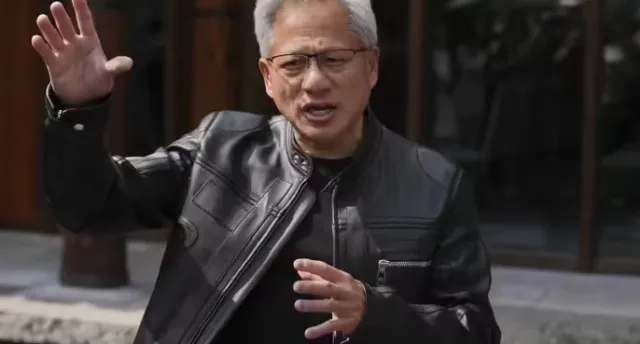
Nvidia CEO Disappointed by China’s AI Chip Ban
Nvidia CEO Jensen Huang has expressed his disappointment following China’s directive to its major technology companies, including ByteDance and Alibaba, to cease purchasing Nvidia’s advanced AI chips, such as the RTX Pro 6000D. This decision comes after Chinese regulators concluded that domestically produced AI processors have reached a level of performance comparable to Nvidia’s offerings.
Huang acknowledged the inherent volatility of Nvidia’s business operations in China, attributing this instability to the ongoing and often complex discussions between the United States and China regarding trade and technology. The ban represents a significant shift in China’s approach to AI development, signaling a move towards self-reliance and the promotion of local technology companies.
The Chinese government’s assessment suggests a growing confidence in the capabilities of its domestic chip manufacturers. This confidence could potentially reshape the global AI landscape, reducing reliance on foreign technology and fostering greater competition in the AI chip market. The implications of this development extend beyond Nvidia, potentially impacting other international chip manufacturers that rely on the Chinese market.
The RTX Pro 6000D, one of the chips specifically mentioned in the directive, is designed for high-performance computing and AI applications. Its exclusion from the Chinese market underscores the government’s commitment to prioritizing domestic alternatives, even in areas requiring cutting-edge technology.
The impact on Nvidia’s financial performance in the long term remains to be seen. While the company has diversified its revenue streams and continues to innovate in other areas, China remains a crucial market for its products. Huang’s statement highlights the delicate balance Nvidia must maintain as it navigates the complex geopolitical landscape and seeks to maintain its market position.
This situation also underscores the broader trend of increasing technological competition between the US and China. Both nations are vying for leadership in key areas such as artificial intelligence, semiconductors, and other advanced technologies. The Chinese directive can be viewed as a strategic move to bolster its domestic industry and reduce its dependence on foreign suppliers in these critical sectors.
The decision by Chinese regulators will likely spur further investment and innovation in the domestic AI chip industry. Chinese companies will be incentivized to develop even more advanced processors to meet the growing demand for AI capabilities across various sectors, including e-commerce, social media, and cloud computing.
In summary, Nvidia’s CEO has voiced concerns over the recent developments in China, which call for the cessation of purchases of Nvidia’s AI chips by leading tech firms. This directive, driven by the emergence of competitive domestic alternatives and ongoing US-China talks, introduces new uncertainties and challenges for Nvidia in a crucial market.
Disclaimer: This news article is based on publicly available information and may be subject to updates.
📢 Stay Updated!
For more news and updates, explore related categories below:




